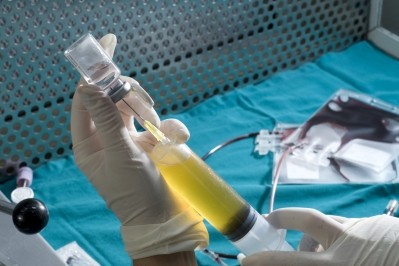Bristol Myers Squibb enlists Cellares amid industry manufacturing “land grab”

Cellares has received a vote of confidence in its integrated and automated cell therapy factories as the big pharma company Bristol Myers Squibb (BMS) has sealed a deal worth up to $380 million to manufacture select CAR-T therapies.
As part of the deal, Cellares will optimize BMS’ therapies for production via its automated cell therapy manufacturing technology called Cell Shuttle, and give the big pharma exclusive use of many of its systems in the US, EU and Japan. Cellares can then receive up to the $380 million total in undisclosed upfront and milestone payments.
With this deal, BMS seeks to boost its cell therapy production muscle and improve its scalability and turnaround time. In the long term, this deal could be of interest as the company flexibly develops multiple cell therapy assets across blood cancers, solid tumors, and autoimmune disorders, said a BMS spokesman in an email.
“This agreement with Bristol Myers Squibb is aligned with our strategy of establishing a global network of high-throughput, automated Smart Factories to meet the growing and worldwide demand for cell therapies,” said Cellares co-founder and CEO Fabian Gerlinghaus in a public release.
Speeding up CAR-T delivery
There are several CAR-T therapies in the market to treat forms of blood cancer, including BMS’s Breyanzi and Abecma. These therapies, which take weeks to complete, involve extracting a patient’s white blood cells, genetically engineering them to hunt down cancer cells, and then reinfusing them into the patient.
CAR-T developers often enlist contract development and manufacturing organizations (CDMOs) to assist with the production of the complex therapy, but there are still challenges to making CAR-T therapies scalably, affordably and with a good quality.
“These challenges impact patients waiting for these life-saving drugs because the conventional ways to manufacture these drugs can’t keep up with the number of patients who need treatment. As a result, we see about 20% of patients dying on the waitlist even though they’re eligible for approved cell therapies,” Gerlinghaus told Biopharma Reporter.
To overcome these bottlenecks, Cellares’ Cell Shuttle equipment automates the cell manufacturing process in consumable cartridges and its quality control technology called Cell Q automatically carries out many of the necessary assays and data handling to screen the cells. This model, which the company calls an Integrated Development and Manufacturing Organization (IDMO), can produce 10 times more cell therapies and deliver them to patients more quickly.
“While other companies have tried tackling the problem of cost, scalability and quality for cell therapies, no one has achieved the level of integration like we have with our Cell Shuttle and Cell Q technologies,” Gerlinghaus said.
Manufacturing “land grab”
BMS and US-based Cellares have worked together before, entering a second proof-of-concept technology transfer process in late 2023 as part of the biotech company’s technology adoption partnership (TAP) program. The big pharma company also pitched into Cellares’ Series C round in the same year to fuel the launch of the first IDMO smart factory.
Cellares’ other publicly disclosed partnerships include with Cabaletta Bio and Lyell, which are evaluating and adopting its technology, and the firm has “many other undisclosed partnerships as well,'' added Gerlinghaus.
Across the cell therapy space, Gerlinghaus sees manufacturing scalability and capacity under big demand as CAR-T developers hunt for production facilities across all stages of clinical development.
“Capacity is king, and the companies who can manufacture cell therapies to meet total global patient demand will be the leaders of the industry. It is a bit of a land grab for our manufacturing capacity right now,” he said.








